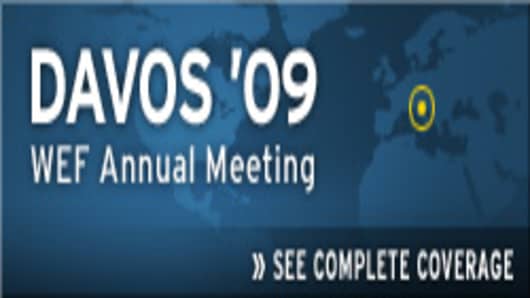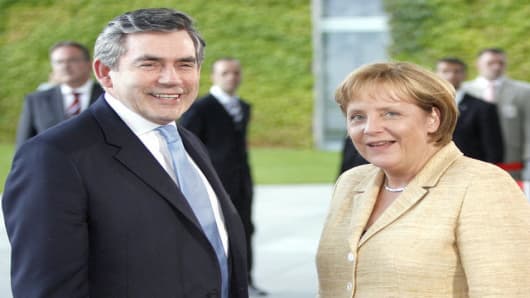Government leaders, not commercial bankers, will dominate the stage at this year's annual meeting of the World Economic forum in Davos, Switzerland. But policy experts say they'll have to do more than just show up.
Among the 41 top politicians and government leaders making their way to the Swiss resort are Russian Prime Minister Vladimir Putin, Japanese Prime Minister Taro Aso, Chinese Premier Wen Jiabao, German Chancellor Angela Merkel and British Prime Minister Gordon Brown.
US President Barack Obama, however, won't be there. Instead, he'll be trying to dominate the Washington stage by getting his fiscal stimulus package pushed through Congress quickly as America's economic slump deepens.
Many analysts agree that until the US economy shows signs of recovery, none of the other countries will be able to take off. Yet at the same time the US needs the other countries' help to achieve that.
"We need stabilization in the US economy," said Hans Engel, equities analyst at Erste Bank.
But the earliest that signs of stabilization could emerge is two months, Engel added; if the Obama administration fiscal stimulus package is passed quickly and kicks in about as quickly.
Without growth in the US., the rest of the world is feeling the pain.
Japanese exports in December plunged 35 percent from a year ago. South Korea’s economy shrank rapidly in the last quarter of 2008, with output down 3.4 percent.
Even China’s red-hot economy slowed markedly in the last quarter of 2008. The annual growth rate, which reached 13 percent in 2007, slowed to 9 percent in 2008 and, more worryingly, was only 6.8 percent in the fourth quarter.
Over in Europe, the German government forecast that the country's economy will shrink by 2.25 percent this year, the worst performance since the end of WW II, a far cry from last October’s forecast of 0.2 percent growth.
The euro-zone economy as a whole will shrink 1.9 percent in 2009, the European Commission said last week. In November, it had forecast growth of 0.1 percent.
A quick, global solution is needed before the world slumps further, say analysts, but so far each country has been trying to weather the crisis on its own.
Fears of Protectionism
Recent comments from the US, where Treasury Secretary-designate Timothy Geithner said China is "manipulating" its currency, and from Europe, where German Chancellor Angela Merkel warned about US moves to prop up its ailing car industry, have sparked concerns about economic isolationism and protectionism.
Calls to "buy British" to support the ailing economy have been heard in the UK, while in the euro zone each country takes its own measures to support banks and fight the effects of the financial crisis, making the European Central Bank's mission to adjust its monetary policy to the needs of the single currency area even more difficult.
Protectionism would be the kiss of death, analysts warn.
"Of all the issues that I think the historians of the 1930s will echo is the question of protectionism, the damage that protectionism did in prolonging the depression," Anthony Fry, senior managing director at Evercore Partners, told CNBC.
Video: Andrew Busch from BMO Capital Markets and Robert Hormats from Goldman Sachs discuss global fiscal stimulus.
"Any form of conflict between the US and China leading to any form of protectionist trade barriers is very, very bad news for the world economy," Fry added.
And as all eyes are turned across the ocean, participants might want to start coming up with ideas on how to better share the burden of consumption, which until now has been borne largely by the US.
Obama's message is that U.S shouldn't go massively into debt just to continue buying cheap comnsumer goods, thus bailing out countries that live by a trade surplus, Philip Manduca, head of investment at ECU Group, told "Squawk Box Europe."
"Those days are over," Manduca said. "The US is just not going to pick up the world tab any longer, both voluntarily and per force."




